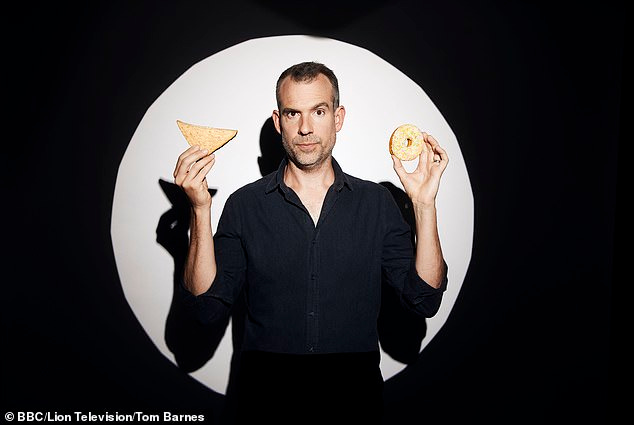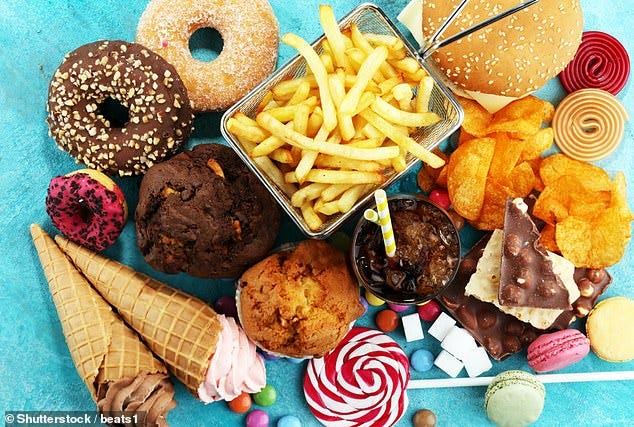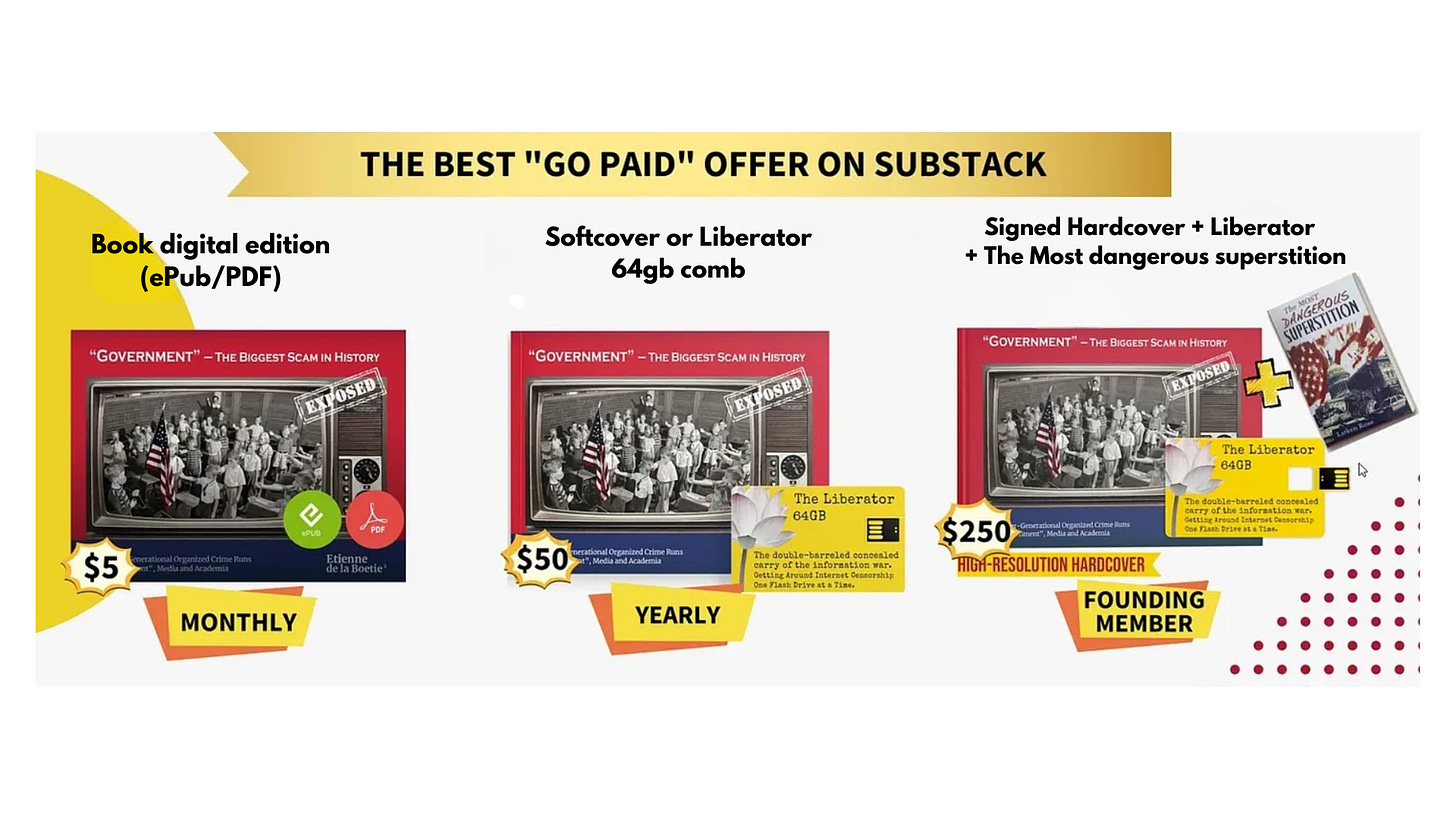Cynical tricks of food giants that are making so many obese. This is how the smartest people on earth make ultra-processed food irresistible and train you to snack, reveals DR CHRIS VAN TULLE
We're all eating too many calories and too much sugar, salt and saturated fat – but you don't need me to tell you that.
By Chris Van Tulleken For The Daily Mail.
We're all eating too many calories and too much sugar, salt and saturated fat – but you don't need me to tell you that.
However, the thing that has eluded scientists until recently is why.
After all, sugar, salt and fat have been cheap and available for a long time – but it's only in the past few decades that obesity has soared. What happened?
'Bliss-point', 'sonic branding', 'vanishing caloric density', 'snackification', 'stomach share' and 'hyperpalatability' is what happened – these are just some of the terms that explain why food-related disease is fast overtaking tobacco as the leading cause of early death in this country and globally.
These terms refer to just some of the covert tactics being used by the food manufacturers with one aim in mind: to make us buy and eat more, and then still more.
These approaches are highly scientific, developed by the best minds, using MRI brain scanners and other techniques, in order to learn exactly how to hijack our unconscious desires.
This knowledge then informs the new products developed by food scientists – moreish, packaged foods.
These are made using industrial processes that you could not replicate in your own kitchen, with ingredients that you would not find in your home larder, what are now known as ultra-processed foods, or UPFs.
We need to bury the idea of the obesity crisis as a failure of willpower: that people are just making bad choices, writes Dr Chris Van Tulleken
But that's not the main problem – the thing that drives consumption is the endless testing and perfecting of the recipe and every aspect of every food product to drive maximum consumption [i.e. make you buy and eat more of it], from the salt, fat and sugar ratio to the colour of the box.
These industrially made UPFs are driving a health catastrophe, with clear evidence from hundreds of studies showing they cause weight gain, obesity, some cancers, dementia, type 2 diabetes and (among other problems) early death from all causes.
Yet we cannot stop eating them: in the UK ultra-processed foods make up around 60 per cent of adult calories – and much more for many young people.
But the fact is, it's not our fault.
All this is laid bare in Irresistible, a new documentary I've made with BBC Two, being broadcast next Monday. In it, you will hear not just from pro-nanny state public health bores like me, who you might argue have some ideological agenda, but from food industry insiders revealing exactly how they have engineered our food to be, well, irresistible.
In our documentary, the scientists who were right at the dawn of this billion-dollar industry explain the hidden tricks and techniques that have been perfected since the 1970s to get deep inside our minds and appetites, and to make ultra-processed food not just appealing, but addictive for many people.
We need to bury the idea of the obesity crisis as a failure of willpower: that people are just making bad choices; that they are somewhat lazy and it's their fault. It's not.
These products have been deliberately developed to drive excess consumption.
In the US, obesity started going up simultaneously in men and women; black, white and Hispanic groups of all ages at the same point: the mid-1970s.
It's not plausible that they all lost moral responsibility simultaneously. Something else changed.
And this is where the story starts with an experimental psychologist in the US, called Dr Howard Moskowitz, who revolutionised the food industry by developing a concept called the 'bliss point'.
Dr Moskowitz was contacted by the bosses at Campbell's Soup to ask if he could help to make their pasta sauce sell better.
By trying 45 different versions of the sauce recipe on consumers and asking them to rate the deliciousness, he discovered that by hitting an optimum amount of sugar, fat or salt in a dish (more, but not too much), he could make people think that the entire recipe was better overall.
Food-related disease is fast overtaking tobacco as the leading cause of early death in this country and globally
Dr Moskowitz called this subliminal target the 'bliss point' – and he proved while working with the likes of Dr Pepper, Tropicana and Spam that by hitting the bliss points with the right combination of salt, fat and sugar, he could sell more product.
This has been a staple of UPF manufacturers' strategies ever since. From that point on, food companies realised that if they employed scientific development processes they could sell us a lot more processed food.
But rather than relying on food-tasters' subjective opinions of their products, some food companies began going much further to discover customers' hidden preferences.
Professor Francis McGlone, the lead neuroscientist at the global food giant Unilever between 1995 and 2009, introduced MRI brain scanning to Unilever to 'dig deeper' into people's preferences.
He explains: 'We are not really aware of why we like what we like.'
So what he and his team did was put volunteers into brain scanners, then fed them ice cream to see what happened to their brains.
If you have found yourself unable to put an ice cream tub back in the freezer, then Professor McGlone's findings may explain why.
'Their brains' orbitofrontal cortex reward systems were glowing like a furnace,' Professor McGlone recalls.
'This approach grew and grew as a way to predict what products would be successful.'
Brain scanning also showed that the texture of industrially produced food is massively important for making us crave it.
Professor McGlone says that soft food 'short circuits' our brain's satiety mechanism so that we eat much more of it before we think we've had enough.
With a crunchy carrot we have to spend a lot of effort chewing it, which tells our brains we are consuming food and should expect to feel full. But soft foods bypass this. That's handy for the UPF giants, because industrial manufacturing changes food textures and tends to make them much softer than natural foods.
Even apparently crunchy foods, such as all those cheesy orange puffs, are incredibly soft – so that you can easily crush them flat with your tongue.
There's no satiety-creating resistance in them, and you keep eating more.
The food industry calls this money-spinning, craving-creating phenomenon 'vanishing caloric density'. These snacks have an incredible amount of energy per gram, but you feel like you've eaten nothing.
But it's not just the food itself that has changed. To sell us even more UPFs, the food giants have changed the culture of how we eat – increasing the number of times that we eat beyond our traditional three meals a day: snackification.
Some of the foods scientists I spoke to for the documentary had previously worked for the food industry – but had left, alarmed by the effect these UPFs were having on people.
Dr Yanaina Chavez-Ugalde, a research associate at the University of Cambridge, trained as a food engineer for Cargill, a huge corporation that makes most of the raw ingredients that go into processed food products. You will likely eat their ingredients multiple times per day.
After witnessing the effects of ever-growing influxes of packaged foods into her native Mexico, seeing the rise of obesity and related diseases, she changed career.
Now, instead, she examines the effects of UPF consumption on young people's health.
Soft food 'short circuits' our brain's satiety mechanism so that we eat much more of it before we think we've had enough
Dr Chavez-Ugalde says that big food companies are now fighting to win 'stomach share' from the competition – and one significant way in which they are doing this is by encouraging us to snack throughout the day.
'Now the first snack of the day is a breakfast shake. It's heavily marketed to consume on the go: do not sit down, do not take time to crunch through something,' she says.
'Snack number two, mid-morning, are protein bars… but often they are empty calories: energy-dense nutrient poor.' Mid-afternoon snacks such as veggie straws are marketed as healthy, she continues. 'But they are not actual food. Then there are post-gym snack bars that promise 'energy protein', and in the evening there are sharing snacks – big packets of crisps that you eat by yourself.'
The key piece of research that exposed the effect of UPFs on our eating habits was produced by Dr Kevin Hall, a senior investigator at the US National Institute of Health in Maryland in 2019 – this proved scientifically that ultra-processed diets really do drive us to eat more, thanks to their clever formulation.
He set up a seminal study, where 20 volunteers spent a month eating either an ultra-processed food diet or a natural food diet.
Both diets had the same levels of salt, sugar, fat, fibre and calories – however, the participants had the freedom to eat as much as they wanted.
Dr Hall assumed there would be 'very little difference' in the groups' calorie intake. In fact he was surprised to find something completely different.
'People on the ultra-processed diets spontaneously over-ate, about 500 calories per day more than people on the minimally processed food diets,' he told me. 'We found that the ultra-processed foods, despite being matched for their nutrient composition, tended to have many more calories per bite,' Dr Hall adds. 'The foods were also high in both sugar and fat, which is very rare in natural foods.'
This combination makes these foods hyper-palatable, triggering your brain's reward system – so you want more.
As I've written in the Mail before, the food industry is trying to fight back against the evidence mounting against UPFs by creating a 'parallel' world of studies, industry-funded research to create confusion and doubt in consumers' minds.
It's a tactic right out of the playbook of the tobacco industry from the 1960s.
The question of course is, could the ultra-processed food industry stop producing such harmful, fattening foods?
John Ruff, a former executive at Kraft and the former General Foods from 1972 to 2008, does not believe that the food giants could, or indeed should, ever stop.
'Companies spend a lot of time optimising all the aspects of their product, including flavour, taste and texture, to sell more,' he told me
Go paid at the $5 a month level, and we will send you both the PDF and e-Pub versions of “Government” - The Biggest Scam in History… Exposed! and a coupon code for 10% off anything in the Government-Scam.com/Store.
Go paid at the $50 a year level, and we will send you a free paperback edition of Etienne’s book “Government” - The Biggest Scam in History… Exposed! OR a 64GB Liberator flash drive if you live in the US. If you are international, we will give you a $10 credit towards shipping if you agree to pay the remainder.
Support us at the $250 Founding Member Level and get a signed high-resolution hardcover of “Government” + Liberator flash drive + Larken Rose’s The Most Dangerous Superstition + Art of Liberty Foundation Stickers delivered anywhere in the world. Our only option for signed copies besides catching Etienne @ an event.









Price, ease of prep, and shelf life are the reasons for what make fast food attractive. Additionally,, fresh food is hard to come by as the "fresh" food found in most markets are not fresh at all. In fact. many the fruit and vegetables are foreign or come from long distances, making them less than desirable. And worse, almost all food has severe toxic ingrediants not found in most other countries, even though their food comes from the same companies in the US! Dealing with this every single day becomes burdensome, so fast food with all its toxic goodies becomes a "temporary" respite, until it becomes a habit - lol!